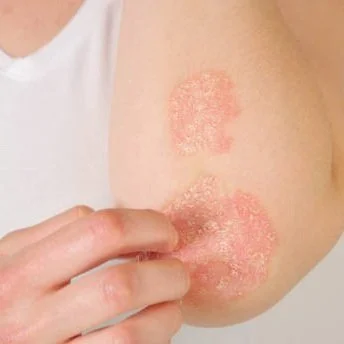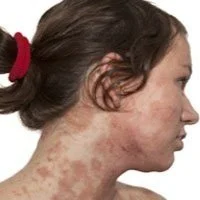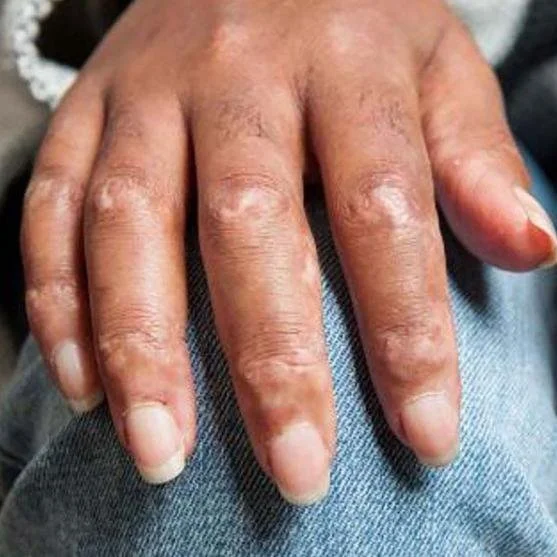Skincare Products For Skin Diseases
People with skin diseases, skin conditions, and skin disorders can find it frustrating and difficult to find skincare products compatible with their skin. After all, many skincare products are meant for average skin with the only difference being that it’s either dry, oily, sensitive, or acne-prone.
But what if you have a different skincare need than the average person?
Of course, the first step should always be to talk to your doctor, dermatologist, immunologist, or another specialist that knows your specific needs. They can tell you what ingredients to look for and more importantly, what to avoid.
You definitely don’t want to aggravate a skin condition with a common ingredient that is helpful for others but harmful for you!
So, what are some common skin diseases and conditions that may be helped by skincare products like scrubs and lotions?
SKIN CONDITIONS THAT CAN BENEFIT FROM SKINCARE PRODUCTS
While there are different medical definitions for disease, disorder, syndrome, and condition, for the purposes of this article, we will not differentiate between them.
So, what are some common skin diseases and conditions that may be helped by skincare products like scrubs and lotions?
Psoriasis
Psoriasis is an immune disorder that results in skin conditions like rashes, flaky skin, and plaques. It may be caused by genetics, environmental factors, other diseases or infections, smoking, and taking certain medications, and can be influenced by diet and stress.
Since psoriasis is also an internal condition, a topical treatment can usually only do so much, and typically only in mild cases. But you can use topical treatments to help heal your skin, perhaps in tandem with medication for your immune system.
Try gentle scrubs, sparingly so as not to agitate your skin. Look for ingredients like green tea, which has been studied as a possible treatment for psoriasis and other skin conditions!
Body creams are beneficial as well, as they can help lock in moisture and nutrients that can help heal the skin.
Eczema (atopic dermatitis)
Eczema is similar to psoriasis, in that it creates dry, itchy, flaky, irritated skin. It may also be linked to genetics, the immune system, and environmental factors, but scientists aren’t exactly sure.
And, like psoriasis, using body scrubs gently and not too often can help relieve some discomfort. Likewise, a good body cream is helpful to soothe dry skin caused by eczema.
Rosacea
Unlike psoriasis and eczema, you may need to avoid manually exfoliating skin with rosacea! You may be able to tolerate mild chemical exfoliation, but scrubs are likely too abrasive.
It’s not quite understood why people get rosacea, but possible contributing factors may be genetics, sensitivity to the sun or other environmental factors, and sensitivity to certain microbes that are common on the skin.
Ichthyosis Vulgaris
Ichthyosis is characterised by dry, itchy skin that appears scaly, red, and rough. It is most likely caused by genetic mutations and environmental factors, and has wildly differing degrees of severity.
For certain people with this condition, exfoliation can be very beneficial. For others, exfoliating will only make things worse. So be sure to patch-test your skin to make sure you’re making the right move!
Moisturising is critical for anyone with ichthyosis.
SKIN CONDITIONS THAT MAY NEED TO AVOID AT-HOME SKINCARE
Some skin disorders may simply be too sensitive to ingredients typically found in non-prescription skincare. Because of this, it may be better to skip the scrubs and book an appointment with a dermatologist to determine what the best medication or treatment is best for you.
Hidradenitis Suppurativa
HS is more than an acne problem. This condition is by genetic, hormonal, and environmental factors as well as diet. It causes the skin to create bumps and boils, with or without pus.
The boils come back in the same place repeatedly, which causes tunnelling under the skin. Exfoliation can cause tears in the skin which become more boils, and creams may be too heavy and subsequently clog hair follicles, causing boils.
Anti-microbial products are recommended.
Scleroderma
This autoimmune condition causes extremely sensitive skin, meaning that manual exfoliation is more likely to cause irritation than be helpful.
Additionally, the skin is usually extremely sensitive to the point where people usually benefit most from a using single ingredient at a time, like shea butter or coconut oil.
Pachyonychia Congenita
Characterized by thickened nails and callouses on the feet which may be extremely painful. It is a genetic mutation and unfortunately, there is no current cure.
Ways to reduce symptoms include trimming or filing the callouses and moisturising with heavy-duty products like petroleum.
INGREDIENTS TO LOOK FOR AND AVOID
Depending on your condition, the ingredients you want to include in your skincare products can vary. Many ingredients can be used for multiple conditions because of their soothing nature and healing properties, but some may not be suitable for particular conditions.
For Psoriasis, Eczema
Look for: Anti-inflammatory ingredients to look for are aloe, sunflower oil, glycerin, coconut oil, jojoba oil, shea butter, vitamin E, witch hazel (only in products you rinse off after a short time), kaolin clay, safflower oil, bentonite, stearic acid, steryl/cetyl/ceteryl alcohol (these are non-drying alcohols), rosemary, astragalus, eucalyptus, chamomile, reishi, lavender oil, tea tree, gotu kola, and dandelion.
Avoid: Harsh ingredients like salicylic acid, denatured alcohols, and sulfates.
For Rosacea
Look for: Aloe, willow bark extract, green tea, rosehip oil, sunflower oil, glycerin, jojoba oil, panthenol, shea butter, green tea, pumpkin extract, kaolin, rosemary, vitamin e, astragalus, reishi, lavender oil, chamomile, and gotu kola.
Avoid: Witch hazel, exfoliants like pumice, walnut shell powder and sea salt, and eucalyptus oil.
For Ichthyosis Vulgaris
Look for: Coconut oil, evening primrose oil, neem, vitamin C, avocado oil, safflower oil, almond oil, aloe, glycerin, jojoba oil, shea butter, gotu kola, green tea, chamomile, dandelion, geranium oil, lavender, and oatstraw extract.
Avoid: Possibly all essential oils, depending on your skin’s sensitivity.







